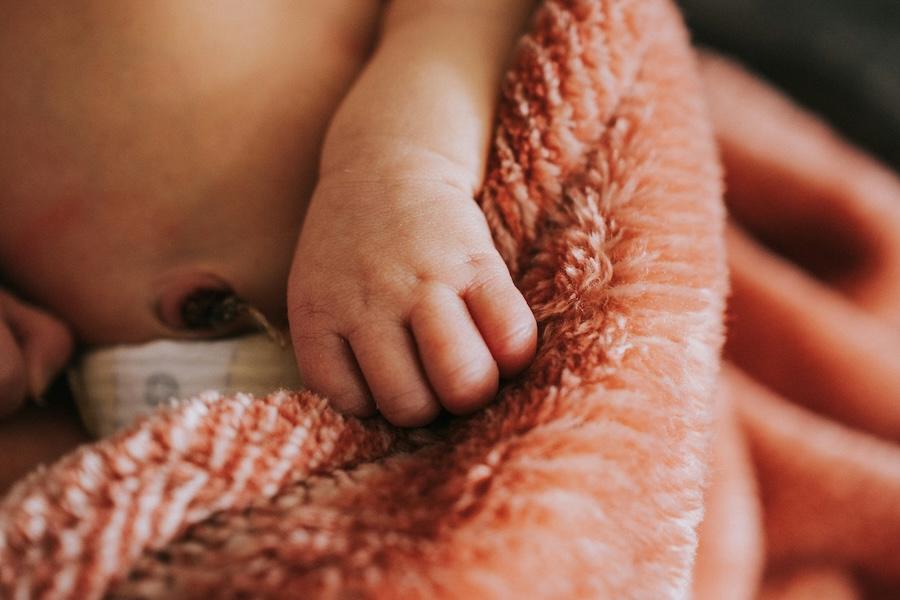Pregnancy can feel like it goes on forever, until suddenly you’ve passed the magical 37 weeks and your baby could arrive at any moment!
Those of you who are expecting your first child have probably been told a hundred times that your baby will arrive after your due date because first babies always do—but that’s not quite true. While it is more common for first-time mothers to go a few days past their due date, not all do. Waiting may get boring, but there are some advantages to having a bit of extra time.
If you’re a partner, now’s the time you can really help. It’s common that a heavily pregnant woman feels tired, resigned and maybe a little worried about the upcoming birth. Your role now is to talk with her about the impending labor and be bold enough to ask questions that may feel silly or too intimate. Both of you will soon be in a situation where you may feel a bit vulnerable. It’s vital that you talk about what’s important for both of you now.
Your role during labor is to support your partner and believe in her ability to cope with the considerable demands of childbirth. If you know what she fears, you’ll be better equipped to help her if it happens.
Of course, there are lots of practical things that you can do both before and during labor. In the last weeks and days before the birth, your partner might feel that the baby is never going to come out, she may be sleeping poorly, and she may suffer from swelling and general tiredness. Offer her the best place to be in your home and arrange the furniture so she can lay back comfortably with her legs up to reduce swelling. Pamper her with your kindness. Encourage her to rest during the day if she isn’t sleeping well at night. It is common to sleep poorly toward the end of pregnancy. Lots of women find it hard to find a comfortable position, the baby takes up more and more space and getting up to pee during the night is probably a regular occurrence.
For the mother-to-be the end of a long pregnancy is finally in sight. Lots of women feel excited and ready to give birth, while others need a bit more time before the desire to meet their baby is greater than the anxiety of giving birth. If you haven’t stopped working yet, now may be a good time so that you can rest a little and get things ready for the baby.
Here are a few things to think about so that you are as well-prepared as possible. Rest if you’re tired and get into the habit of lying down for a while during the day. Your body will feel better. Keep active by going for walks, practicing yoga, or doing whatever exercise makes you feel good at the moment.
Take time to think about how you will cope with pain and tiredness during labor. It’s going to be hard work; your body is going to go through one of the biggest physical challenges of your life. You will get through it with the help of your inner strength and support from your partner and the staff at the hospital or birth center.
When labor begins
Partners can provide hands-on help now. A back or foot massage usually feels good as does placing a warm towel under the belly, or a warm bath to ease labor pains. Try to help your partner to find comfortable positions so you can both rest until it’s time to go to the hospital or birth center.
It’s a good idea to eat something, preferably something that contains carbs and a little salt, not just sweet things. This is especially important when the weather is warm. Drink a few glasses of water every hour; that will be sufficient if it’s not too hot and you don’t stay in a hot bath for too long. Remember to phone your health care provider to let them know that your baby is on the way!
Things you need to take with you to the hospital or birth center:
- Your maternity notes, birth plan if you’ve written one, health insurance card and pre-registration forms. Ask your health care provider if you are uncertain.
Cash or payment card to pay for parking and snacks for your partner.
Things you might like to have with you:
- Fruit, a snack, maybe some candy and something to drink such as water or an energy drink.
- Clothes for your baby (remember to pack a little hat!)
- Nursing bra.
- Nightgown, robe and slippers.
- Toiletries.
- Camera.
- Baby car seat.
Partners need to remember to bring the labor bag packed with essentials, and non-essentials, for labor and after the birth. It may be a good idea to take a taxi or ask someone else to drive you to the hospital since this will allow you to give all your attention to your partner. Most women in labor are grateful for the support of their partners.
Remember to pack a few things for yourself such as some clothes, comfortable shoes and toiletries. Familiarize yourself with the arrangements in advance, such as where you can buy food, how the parking works and that sort of thing. You can probably find this kind of information on the hospital or birth center website.
